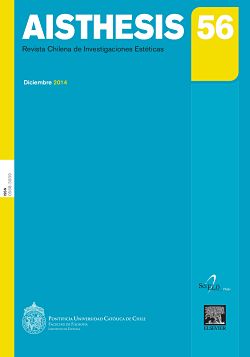Memory and Revolt in Poetry by Mapuche Women Intimacy/Social Bond II
Main Article Content
Abstract
The following article exposes an indagative narrative located in the cross between poetry by Mapuche women, memory and sexual difference. There are two central figures explored by the textual interpretation: “the loss of land/of language” and “the struggle in the name of the fallen/in one’s own name”. This heuristic work is based on a multiple-sided theoretical-critical framework: feminist critical theory (Butler, Braidotti, Kristeva, Anzaldua), philosophy (Ricoeur, Blanchot) and literary criticism (Genovese, Blanchot). The selected corpus for the analysis is drawn from three major anthologies by Mapuche women: Hilando en la memoria, edited by Soledad Falabella, Allison Ramay, Graciela Huinao and Roxana Miranda Rupailaf (2006, 2009); and Kümedungun/Kümewirin edited by Maribel Mora Curriao and Fernanda Moraga (2010).
Downloads
Article Details

This work is licensed under a Creative Commons Attribution-NonCommercial-ShareAlike 4.0 International License.
All contents of this electronic edition are distributed under the Creative Commons license of "Attribución-shareAlike 4.0 Internacional" (CC-BY-SA). Any total or partial reproduction of the material must mention its origin.
The rights of academic works published in this publication belong to their authors., who grant to AISTHESIS: Revista Chilena de Investigaciones Estéticas the license for its use. The management of the permits and the authorization of the publication of the images (or of any material) that contains copyright and its consequent rights of reproduction in this publication is the sole responsibility of the authors of the articles
